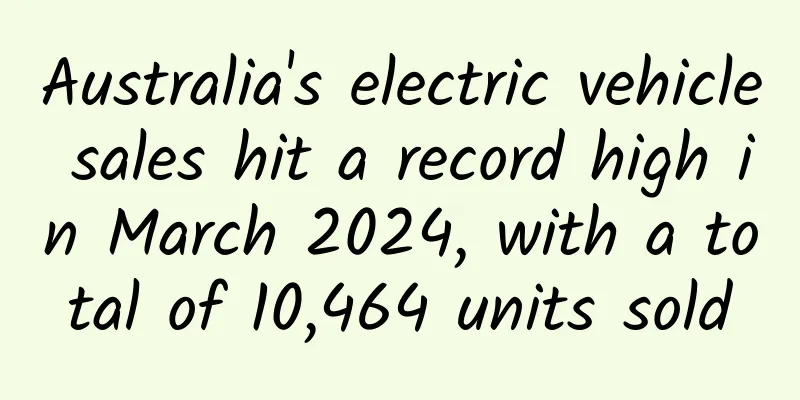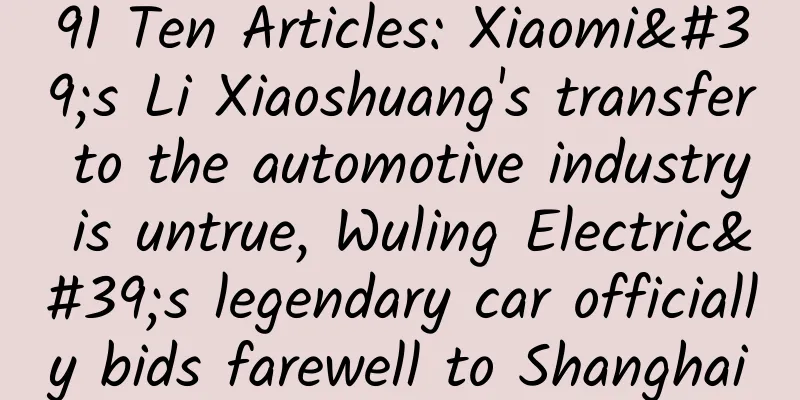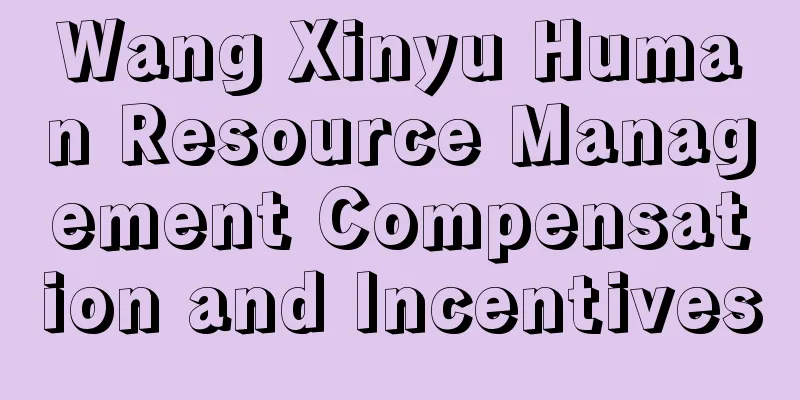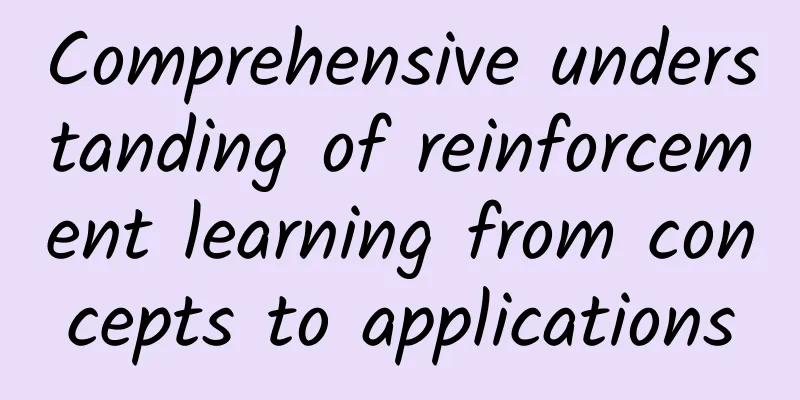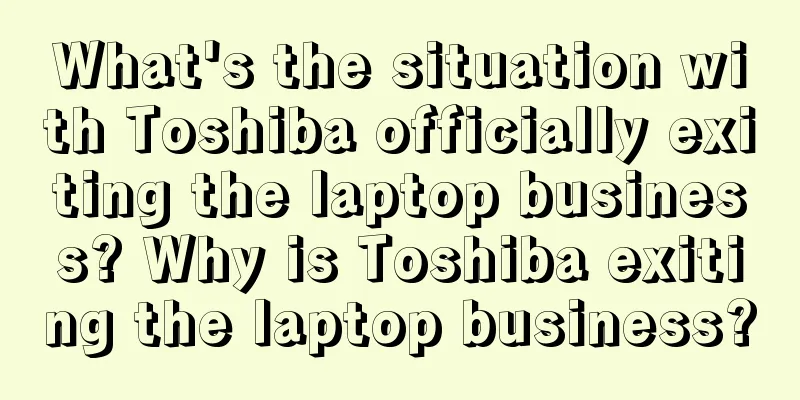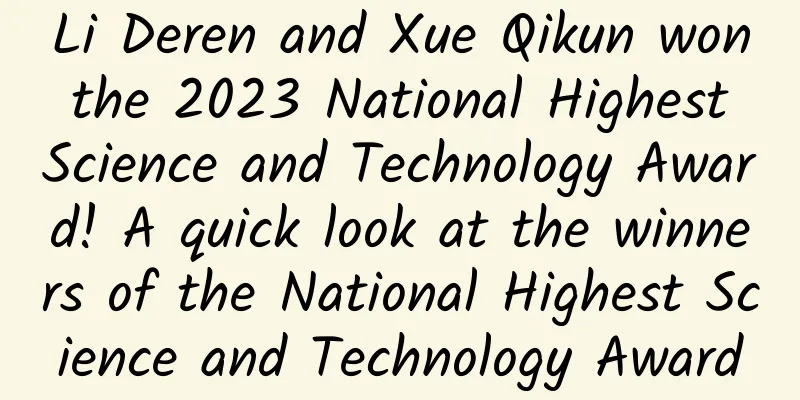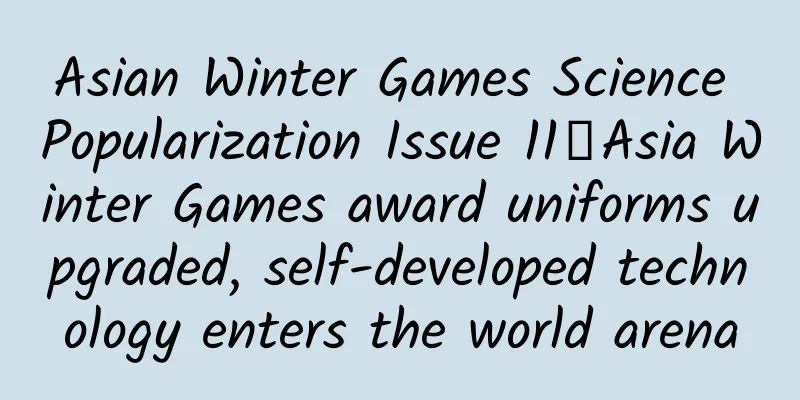The Death of NetEase Cloud Music: Strangled to Death by Tencent and Alibaba
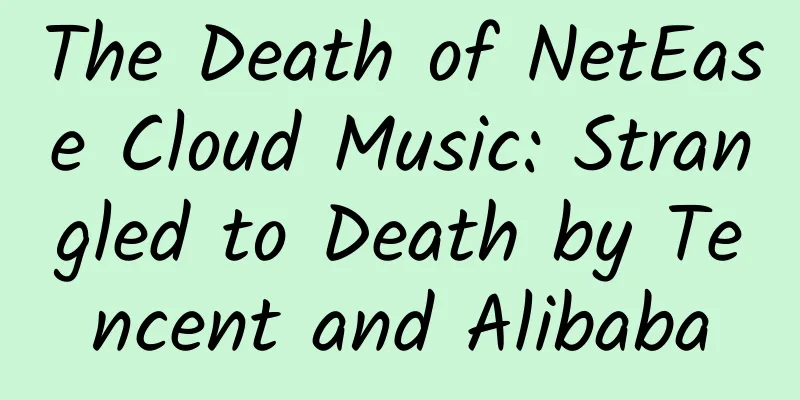
|
It would be irresponsible to conclude that NetEase Cloud Music is on the decline because of the recent copyright exchange agreement between Alibaba and Tencent. However, that copyright incident not only embarrassed NetEase Cloud Music, but also reflected the dilemma of music copyright management in China. The challenge that NetEase Cloud Music has faced since its inception is the unknown direction of streaming music. Even if China's music copyright management agencies come to the fore, it is still those record companies that are strangling NetEase Cloud Music. Apple Music and Spotify in China The confrontation between Tencent and NetEase Cloud Music is the Chinese version of the competition between Apple Music and Spotify, with the only difference being that Tencent monopolizes 90% of the copyrights in the Chinese music market, so NetEase Cloud Music has to obtain the right to use relevant songs from Tencent. Now Tencent and Alibaba have exchanged millions of music libraries, which has almost forced NetEase Cloud Music into a corner. But if you think Tencent has more bargaining chips in negotiations with record companies, you are wrong. Because record companies own the rights to all music works, which is a bargaining chip more valuable than cash, it is also why they can easily reject Apple's attempt to set the monthly fee at $4.99 and then reap the benefits through competition among streaming service providers. The massive Tencent is now crushing its competitors through a price war. In the copyright war of Universal Music in May this year, BAT and NetEase launched a fierce competition. Even if Ding Lei flew to the headquarters of Universal Music in Los Angeles, it was useless. Tencent Music Entertainment Group (TME) still won the final victory. They offered a high price of US$350 million in cash plus US$100 million in equity, which Universal could not refuse. So is Spotify, the world's largest streaming service provider, profitable? Of course not, and it is difficult to make a profit. The company lost 539 million euros (about 610 million US dollars) last year, the worst deficit in its history. Not only that, Spotify has promised to pay at least 2 billion euros in copyright royalties in the next two years in order to obtain music authorization from the world's largest record company Universal Music Group and the independent record association Merlin Network. NetEase Cloud Music is certainly not profitable, and like Spotify, it continues to burn investors’ money. In April this year, NetEase Cloud Music announced that it had received 750 million yuan in financing, with a valuation of 8 billion yuan. But this amount of money is definitely not enough to buy the copyright, especially when Alibaba and Tencent are still driving up the prices. Spotify now uses 69% of its revenue to pay music copyright fees every year. In China, this proportion of streaming service providers may only be higher. Therefore, the final outcome of NetEase Cloud Music will be squeezed dry by the record companies. Under the joint stranglehold of Tencent, Alibaba and the record companies, NetEase Cloud Music will be forced into a corner until the investors' money is burned out and users can no longer listen to the songs they want to listen to. At that time, Tencent and Alibaba will renegotiate with the record companies, and the record companies will reap the new wave of benefits. The terrifying but short-sighted Tencent Music Entertainment Group The scary thing about Tencent is that the country has to be wary of its monopoly in many aspects. However, the establishment of Tencent Music Entertainment Group (TME) in July last year did not encounter antitrust investigations. The merger has not appeared in the list of unconditionally approved concentration of operators cases announced by the Anti-Monopoly Bureau of the Ministry of Commerce. Haha, the establishment of TME has made it the leader in the online music market. In fact, the Anti-Monopoly Law had always been a sword of Damocles hanging over Tencent’s head. However, on March 28, 2013, the Guangdong High People’s Court ruled in favor of Tencent in the first instance of Qihu’s lawsuit against Tencent for alleged abuse of dominant position during the 2010 “3Q War”, and found that Tencent did not have a dominant position in the instant messaging market. Thus, the sword hanging over Tencent’s head was removed. In May this year, Tencent and Universal Music reached a strategic cooperation agreement on digital copyright distribution in mainland China. The lack of enforcement of the Anti-Monopoly Law was a major background for this. Well, now let's see how short-sighted TME is. Tencent's refusal to authorize NetEase Cloud Music to use songs is for its own smooth IPO. On April 11 this year, NetEase Cloud Music just announced that it had raised 750 million yuan and its valuation reached 8 billion yuan. Half a month later, it was revealed that TME was going to go public in Hong Kong. Of course, this anxious mood is understandable. On the one hand, NetEase Cloud Music is huge and growing rapidly. The strong defense and high frequency of users on the platform are enough to make any competitor feel ashamed and jealous. On the other hand, the first listed company in the industry is the most favored by investors, which can be seen from iQiyi's repeated failures in its attempt to enter the Nasdaq. But even so, the record companies may still have more say than Tencent. Because Apple has the largest cash reserves among all companies, but it still cannot dominate the terms in the negotiations with the record companies. Not only did they flatly reject Apple's attempt to set the monthly fee at $4.99, they also described Apple's move as extremely cruel. They believe that this is Apple weakening the competitiveness of its competitors. "From the bottom up to Tim Cook, these guys at Apple are cutthroat," said a record industry insider in an interview. But the reality is that for consumers, $4.99/month - or $60 per year - is closer to the market price that music listeners are willing to pay each year. Lower prices will bring in more paying users, and for streaming services and the entire music industry, paying users are much more valuable than free users. Data from the International Federation of the Phonographic Industry shows that each paying user generates more revenue per year than 26 free users. Clearly the record companies are also short-sighted. They are now negotiating to allow several major streaming platforms to compete with each other and reap the benefits. The crowd and the lonely creator Ding Bo, vice president of NetEase Cloud Music, sighed: "Our biggest mistake was not acting in time when these giants were scrambling for exclusive copyrights, which may result in our future growth being constrained by others." The deep-seated reason for this helplessness is that the fate of NetEase Cloud Music is the same as that of Spotify, and has long been in the hands of the ultimate controllers of digital copyrights - record companies. Now NetEase Cloud Music has formed two paths internally. One is to continue purchasing copyrights. After all, some users who cannot hear the songs they want will go to Tencent. The other is to deepen its own content community. For the virgin land that has just been cultivated, it means re-educating users and fighting against competitors, which is obviously difficult. The independent musicians plan has been put on the agenda for a long time. In addition to NetEase Cloud Music and Xiami, Tencent Music has also proposed a "small goal": to make musicians earn 500 million yuan in three years. There is no way, 68.8% of independent musicians have an average monthly income of less than 1,000 yuan from music, and their main source of income is performance. Haha. In addition, it is difficult to manage your own songs. Without notification, the songs will be shared to the music library of QQ, Kuwo, and Kugou by default. Many independent musicians still cannot get fees from the dissemination of their works, or even paid downloads. Users are still switching between multiple players to hear the songs they want, and a large number of independent musicians are still unable to fill their stomachs. The National Copyright Administration said, "Avoid purchasing exclusive copyrights," and that was that. The so-called music market ecosystem is far from healthy. As a winner of Toutiao's Qingyun Plan and Baijiahao's Bai+ Plan, the 2019 Baidu Digital Author of the Year, the Baijiahao's Most Popular Author in the Technology Field, the 2019 Sogou Technology and Culture Author, and the 2021 Baijiahao Quarterly Influential Creator, he has won many awards, including the 2013 Sohu Best Industry Media Person, the 2015 China New Media Entrepreneurship Competition Beijing Third Place, the 2015 Guangmang Experience Award, the 2015 China New Media Entrepreneurship Competition Finals Third Place, and the 2018 Baidu Dynamic Annual Powerful Celebrity. |
<<: Sales in August increased by 143% year-on-year! Weimar EX5-Z demonstrates its super strength
>>: Can Ford's all-electric Mustang Mach-E still be called a Mustang?
Recommend
19-year-old boy suffers from Alzheimer's disease, test yourself now!
Recently, a paper by Capital Medical University P...
Canada: Electric vehicles to account for 100% of new car sales by 2035
Electric vehicles are proving to be quite popular...
Google's "robot dog" enters service and is tested by the Marine Corps
Google's Legged Squad Support System (LS3) rob...
What do you need to do to do bidding hosting?
If there is a very professional bidding promotion...
Warning! Pay attention to these things →
The wind blows up the sand! In the afternoon of t...
The Great Cold, New Year's Eve and Spring Festival are "happily linked" only five times in this century!
Science Fiction Network, January 19 (Jin Kaiyi) T...
Apple GPU's biggest revolution in 7 years: 80% improvement, outperforming Android
In March this year, Imagination announced the firs...
Search bidding planning budget strategy!
In actual search bidding, you will often encounte...
It seems we have been fooled, the universe is hiding it! What is dark matter?
We searched for it, but it was nowhere to be foun...
You may be eating these carcinogens every day! Huaxi doctors: The best way to prevent cancer is...
When it comes to cancer, everyone always feels fa...
【motioner】3D software brawl|Dreamlike combos from concept to screen【HD quality with material】
【motioner】3D software brawl|Dreamlike combos from...
Evaluation of 16 Bluetooth headsets: Are the thousands of yuan headsets only good for making noise?
Since we launched the call for submissions in Jan...
11 low-key but useful details in Android 9.0 Pie
Android 9.0 Pie was officially released a few day...
How to optimize iOS projects?
1. Structure and Architecture 1.1 Structure There...
Automobile manufacturing is a protracted battle, and new car manufacturers may be able to take it slow
Recently, He Xiaopeng's statement on his PPT ...
